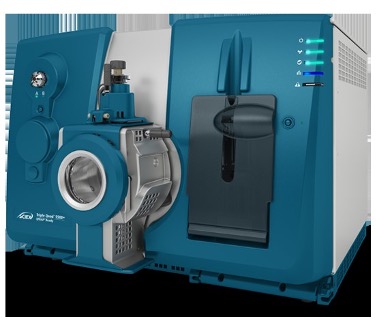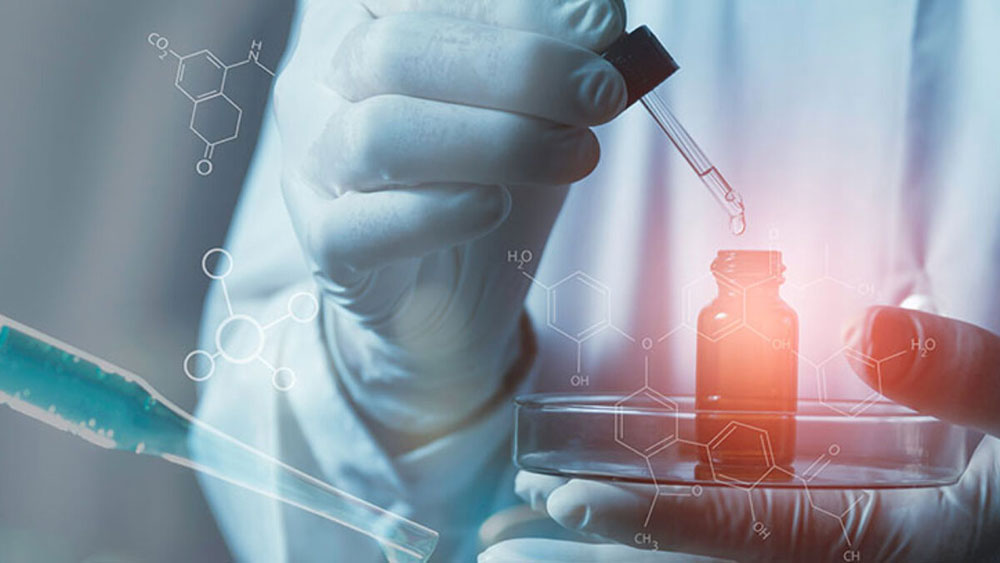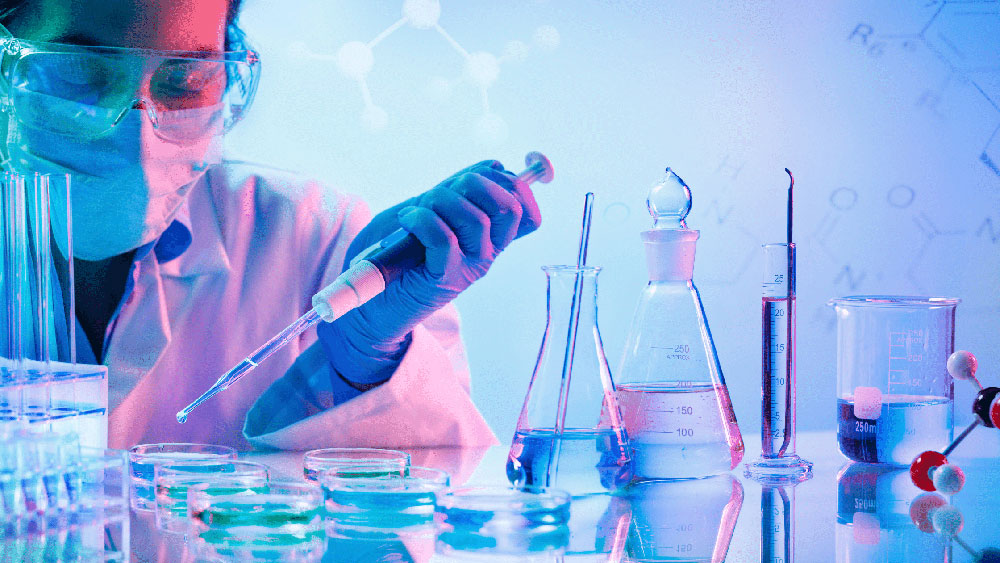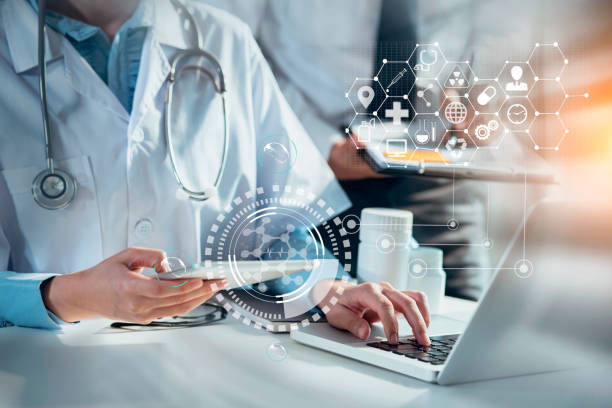- Home
- Our Services
- Bioanalysis Testing
Comprehensive Bioanalytical Services from Discovery to Clinical
We provide a full spectrum of bioanalytical services, supporting every stage of drug development, from non-regulated early discovery to regulated pre-clinical and clinical phases (I-IV). Our expertise encompasses all types of drug products and biomarkers, including small molecules, proteins, antibodies, and oligonucleotides.
Our team has extensive experience in developing bioanalytical assays across various matrices, including blood, plasma, urine, tissues, cerebrospinal fluid, and feces.
By utilizing advanced instrumentation, we deliver robust, sensitive assays that address complex bioanalytical challenges and accurately quantify analytes. Our facilities are equipped with state-of-the-art, temperature-controlled storage for bio-samples at 2-10°C, -20°C, and -80°C.
We ensure timely delivery of results to facilitate rapid decision-making during dose escalation studies. All results undergo rigorous Quality Control (QC) and source verification by our dedicated Quality Assurance (QA) team.
Our Services
- Customized development of robust and reproducible bioanalytical methods tailored to your project’s specific needs.
- Expertise in handling a wide range of biological matrices.
- Comprehensive validation of bioanalytical methods in accordance with international guidelines (ICH, FDA, EMA).
- Ensuring accuracy, precision, selectivity, sensitivity, and stability of analytical methods.
- High-throughput analysis of biological samples using state-of-the-art technology.
- Quantification of small molecules, peptides, proteins, and other analytes in various biological matrices.
- Expertise in pharmacokinetic (PK), pharmacodynamic (PD), and biomarker analysis.
Technology
Partnering with PharmaPrimes Laboratories gives you access to a broad spectrum of bioanalytical techniques and complementary analytical services, ensuring every aspect of your bioanalytical requirements is met with precision and expertise.
Our comprehensive offerings include:
- Liquid Chromatography-Mass Spectrometry (LC-MS/MS)
- Quadrupole Time-of-Flight Mass Spectrometry (QToF-MS)
- Gas Chromatography-Mass Spectrometry (GC-MS/MS)
- Inductively Coupled Plasma Mass Spectrometry (ICP-MS)
- Immunochemistry (ELISA based assays)

Quantitative Mass Spectrometry
Mass spectrometry, particularly when integrated with liquid chromatography, stands as one of the most extensively employed techniques for detecting drugs and chemicals in bioanalytical studies. Quantitative LC/MS/MS (liquid chromatography-tandem mass spectrometry) is the preferred method for achieving selective and sensitive detection across a broad spectrum of compounds. This approach is invaluable throughout the development stages of pharmaceutical products. It enables rapid and precise identification, providing critical insights that support decision-making and help ensure timely achievement of project milestones.
At PharmaPrimes Laboratories, we bring a rich history of expertise in mass spectrometry testing services. With decades of technical experience, we excel in addressing the most challenging aspects of developing, validating, and executing LC/MS bioanalytical methods. Our comprehensive services are designed to support every phase of drug development within a regulated environment. We specialize in the analysis of a wide range of products, including:
- small molecules
- peptides
- proteins
- antibodies
- biomarkers
- oligonucleotides
Biological Sample Preparation
From a straightforward approach to various advanced techniques, selecting an appropriate biological sample preparation method is crucial to achieving the objectives of a project. A well-thought-out study design should focus on optimizing method development, accelerating analysis speed, and delivering high-quality results while adhering to regulatory standards. Effective mass spectrometry services prioritize assay sensitivity, sample complexity, and enhanced productivity, and, where applicable, incorporate automation to handle large sample volumes efficiently.
The most commonly analyzed biological samples is plasma, which is used for determining pharmacokinetics, drug clearance, and bioavailability. In contrast, urine samples are primarily used to assess compound elimination.

Method Development and GLP Bioanalytical Method Validation
Accurate measurement of chemical and biological drug concentrations, along with their associated metabolites, is crucial for key nonclinical toxicokinetic (TK) and pharmacokinetic (PK) studies, as well as Phase I-III clinical trials. Reliable results from well-characterized, properly validated, and thoroughly documented methods are essential for generating the data needed to support regulatory decisions for your studies.
Bioanalytical Method Development
Developing bioanalytical methods for both small and large molecules requires a careful approach to defining the design, operating conditions, limitations, and overall suitability of a method. This process is essential to optimizing the method for validation. Method development focuses on identifying the most effective procedures and conditions for extracting and detecting the analyte and its metabolites, recognizing that each bioanalytical technique has unique characteristics that vary depending on the analyte. Our scientists are continuously developing and validating methods for both small molecules and biologics across multiple technology platforms, including LC-MS/MS, QToF-MS, LBA, ELISA systems. The extensive network of bioanalytical chemists at PharmaPrimes Laboratories offers a vast reservoir of expertise, making us well-equipped to tackle even the most challenging assays.

Bioanalytical Method Validation
Employing well-characterized, fully validated bioanalytical methods is crucial for obtaining reliable results that inform critical go/no-go decisions throughout the drug development process. Our scientists ensure that each bioanalytical method is validated in accordance with relevant health agency guidelines, ensuring it is suitable for the intended purpose of a study and generates robust data in terms of specificity, precision, and accuracy.
From preclinical studies through late-phase clinical trials, a bioanalytical method may require modifications, such as adjusting the lower limit of quantification, incorporating additional metabolites, or optimizing the method to minimize interference. Experience plays a vital role in minimizing delays during these adjustments.
Whether your focus is on small molecules or large molecules, our dedicated team of expert bioanalytical chemists is committed to ensuring that your method validation and subsequent drug quantitation studies meet your timelines and regulatory requirements.
Bioanalytical Method Validation Guidelines
Various levels of bioanalytical method validation can be utilized, including full validation, partial validation, and cross-validation. Each of these validation types is clearly defined in the draft ICH Bioanalytical Method Validation Guidelines.
International guidelines provide recommendations for bioanalytical method validations for chemical and biological drug quantification and the application of those methods in the analysis of study samples.
https://database.ich.org/sites/default/files/M10_Guideline_Step4_2022_0524.pdf
https://www.ema.europa.eu/en/bioanalytical-method-validation-scientific-guideline
Compliance
- Adherence to Good Clinical Laboratory Practice (GCLP) standards.
- Commitment to maintaining the highest levels of quality and data integrity.
- Extensive experience in both regulated (e.g., clinical trials) and non-regulated environments (e.g., discovery research).
- Compliance with international industry guidelines (ICH, FDA, EMA).
- International standard for testing and calibration laboratories ISO/IEC 17025.
-
Medical laboratories standards: ISO15189:2012
- Quality management system ISO 9001:2015.
Virtual Bioequivalence
It is an innovative pre-study service offered by PharmaPrimes, designed to help clients estimate the probability of passing or failing bioequivalence (BE) studies before investing significant resources. Using advanced modeling and simulations based on preliminary data, we generate insights into the likely outcomes of BE studies. This service helps companies make informed decisions about study design, potentially reducing time, cost, and resources associated with failed studies. By leveraging virtual bioequivalence, clients gain a strategic advantage in evaluating study feasibility and optimizing formulation development early in the process.
LC-MS/MS analysis for Bioequivalence and Bioavailability Studies
At PharmaPrimes Laboratories, we specialize in providing comprehensive bioanalytical services for the pharmaceutical and biotechnology industries. Our state-of-the-art LC-MS/MS (Liquid Chromatography-Tandem Mass Spectrometry) technology ensures precise and reliable quantification of drugs and metabolites in biological matrices.
We offer expert support in Bioequivalence (BE) and Bioavailability (BA) studies, which are essential for the development of new drugs and generic formulations. Our highly skilled team of scientists, combined with advanced instrumentation, guarantees high-quality data to meet regulatory standards, helping you navigate the critical stages of drug development with confidence.
Our bioanalysis services include:
- Quantitative analysis of drugs and metabolites in plasma, serum, urine, and other biological matrices
- Rapid turnaround times with a focus on data accuracy and regulatory compliance
We are committed to delivering reliable, reproducible results to support your bioequivalence and bioavailability studies, ensuring your products meet the necessary safety and efficacy standards for regulatory approval.
Partner with us for your LC-MS/MS bioanalysis needs, and leverage our expertise to move your drug development forward efficiently and effectively.
What is Therapeutic Drug Monitoring (TDM)?
- Definition: TDM is the clinical practice of measuring specific drug concentrations in a patient’s bloodstream at designated intervals to ensure a constant therapeutic level.
- Objective: To optimize individual patient care by adjusting drug dosages based on pharmacokinetic and pharmacodynamic principles.
- Importance: Ensures drugs are administered safely and effectively, minimizing toxicity and maximizing therapeutic benefits.

Why is TDM Crucial in Healthcare?
- Personalized Medicine: TDM is a cornerstone of personalized medicine, allowing for tailored drug therapy based on individual patient needs.
- Safety and Efficacy: Helps in avoiding subtherapeutic or toxic levels, thus preventing adverse drug reactions and improving efficacy.
- Improving Outcomes: Facilitates better management of chronic conditions like epilepsy, cancer, cardiovascular diseases, and infections by maintaining optimal drug levels.
- Regulatory Compliance: Many international guidelines, including those from the FDA and EMA, recommend TDM for specific medications, especially in complex clinical scenarios.
Challenges in TDM
- Pharmacokinetics Variability: Differences in absorption, metabolism, distribution, and excretion among patients.
- Drug Interactions: Co-administration of multiple drugs can affect drug levels.
- Patient Compliance: Adherence to medication and lifestyle choices can influence drug effectiveness.
- Cost and Accessibility: Traditional TDM services can be costly and may not be readily available in all settings.
Our Expertise in Bioanalysis and TDM
- High-Quality Standards: We adhere to stringent quality control measures, ensuring precise and accurate results every time.
- Cutting-Edge Technology: Utilizing state-of-the-art LC-MS/MS and other advanced analytical techniques for reliable TDM results.
- Experienced Team: Our team comprises highly trained bioanalytical chemists with extensive experience in pharmacokinetics and drug metabolism.
- Customized Solutions: We offer tailored TDM services to meet the specific needs of each healthcare provider, considering patient demographics and drug-specific requirements.
Competitive Advantage: Why Choose Us?
- Rapid Turnaround Time: Efficient sample processing and analysis to provide timely results, crucial for patient management.
- Comprehensive Support: From sample analysis to detailed interpretative reports, we offer full support to ensure ease of use and optimal results
- Cost-Effective Services: Our streamlined processes and advanced technologies allow us to offer TDM services at competitive prices without compromising quality.
